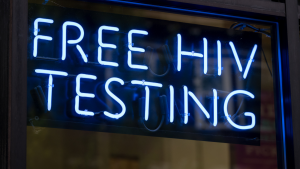
HIV Testing
The only way to tell you have HIV is get tested. Testing is recommended at least once for everyone, and may be recommended more often for some. Testing can be quick, easy and confidential.
Life continues after becoming HIV positive. Thanks to new treatments, many people with HIV are living long, healthy lives. It is very important to make sure you have a doctor who knows how to treat HIV. A health care professional or trained HIV counselor can provide counseling and help you find an appropriate doctor who will advise you regarding treatment regimens. Peer support and other support groups can also be very helpful for management of HIV.
No, there is no cure for HIV. However, with good and continued treatment, the progression of HIV in the body can be slowed down and almost stopped. Increasingly, people living with HIV feel good and are productive for many years after infection. There is no reason to believe life ends once a person becomes HIV positive. Many people live long lives after becoming HIV positive.
If you do not have a health care provider or would like information on how to find an HIV-knowledgeable doctor, you can search here for HIV treatment and services. The Ryan White HIV/AIDS Program provides HIV primary medical care, drug treatment support, and essential support services to low income people living with HIV.
Antiretroviral therapy (ART) is used in the treatment and prevention of HIV infection. Antiretroviral drugs work against HIV by stopping or interfering with the reproduction of the virus in the body. Antiretroviral drugs have been able to slow the progression from HIV to AIDS, so that some persons who are HIV positive have lived decades without developing symptoms of AIDS. This is a real triumph, as HIV positive persons are able to live relatively normal and active lives, provided they take treatment regularly.
When taken the right way, ART greatly reduces the amount of HIV in the blood (the viral load). In some individuals taking these drugs the HIV viral load becomes undetectable. There is effectively no risk of sexual transmission of HIV when the partner living with HIV has achieved an undetectable viral load and then maintained it for at least six months. It isn’t known if someone with an undetectable HIV viral load is able to transmit the virus through sharing needles and injecting equipment, though.
Even when antiretroviral therapy (ART) is available, people living with HIV need other elements of care. In addition to access to HIV treatment, good nutrition, safe water, and basic hygiene are examples of the behaviors and activities needed to ensure a good quality of life for a person living with HIV. People with HIV may need psychosocial support and counseling. Family, friends, peers, and support groups can also help.
Before you tell a partner about your HIV status, it’s important that you first come to terms yourself with having HIV. If you don’t understand and accept the fact that you have HIV it will be even more difficult for a partner to. It will also be important to know the basic steps that you can take to reduce the risk to your partner. You will want to feel confident and knowledgeable before talking with your partner.
When you do talk to your partner, choose your own words and way of telling your partner. What’s comfortable for one person may be different for another. Some examples of what has worked for people in the past:
The Talk HIV campaign from the Centers for Disease Control and Prevention (CDC) has a number of conversation starters for conversations with friends, family, and potential or current partners.
For many people telling their partner that they have HIV is a sensitive issue and knowing when to raise it is important. It’s best to let the friendship develop first, but it’s not best to wait until you’ve become sexually intimate. If you wait this long people may feel angry or have mistrust. Disclosing your status can create a more honest and open relationship, either as friends or intimate partners. Not everyone will feel comfortable immediately after conversations such as these, that’s why patience and understanding are key. Remember, telling a partner about your HIV status is a small part of relationship building.
#AskTheHIVDoc is a series of short explainer videos from Greater Than HIV featuring top HIV doctors covering all aspects of HIV from prevention (including PrEP) to diagnosis, care and treatment, as well as the basics.

The only way to tell you have HIV is get tested. Testing is recommended at least once for everyone, and may be recommended more often for some. Testing can be quick, easy and confidential.
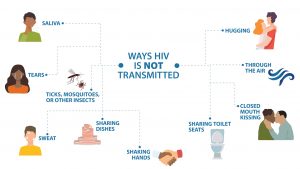
HIV stands for Human Immunodeficiency Virus. Learn the basics about HIV prevention, testing, and treatment.

HIV and Pregnancy There is a lot to think about when you want to have a baby or when a baby is on the way. One important step is to learn about HIV. There are good reasons to get an HIV test if you are
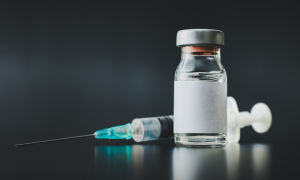
The USPSTF recently released updated recommendations on Pre-Exposure Prophylaxis for preventing the sexual transmission of HIV. The recommendations add additional medications, including a long-acting injectable.

A new study found that opt-out screenings for all patients in emergency departments caught numerous cases of syphilis and HIV that would have gone undetected under other screening protocols.
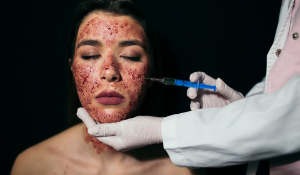
A joint investigation by the CDC and the New Mexico Health Department has confirmed that an unlicensed medi-spa is responsible for at least three cases of HIV.
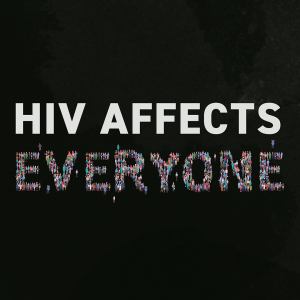
Anytime is the right time to promote HIV prevention and advocacy and there are specific observations recognized throughout the year when it’s especially good to be involved.
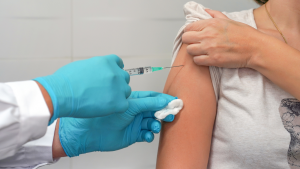
Remarkable results in a Phase III PrEP trial with women and adolescent girls in Africa—two injections per year effectively prevented all HIV infection.
ASHA believes that all people have the right to the information and services that will help them to have optimum sexual health. We envision a time when stigma is no longer associated with sexual health and our nation is united in its belief that sexuality is a normal, healthy, and positive aspect of human life.
ABOUT
GET INVOLVED
ASHA WEBSITES
GET HELP
© 2025 American Sexual Health Association